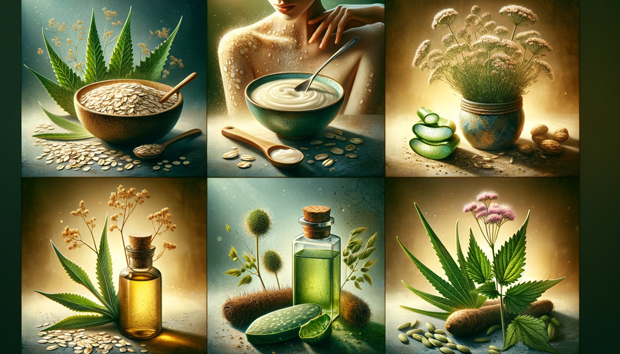4 natural remedies for acne and oily skin
Acne and oily skin are two conditions that often go hand in hand.
To combat imperfections, it is necessary to look for combined methods.
There are not very many plants designed to combat the problems of oily skin and acne.
There are some herbs that are meant to be taken orally, but they usually taste bitter and are difficult to tolerate.
It is assumed that these herbs help to eliminate toxins with bile – they have a so-called depurative effect.
Plants with anti-inflammatory properties can be applied topically to the skin.
Oats for oily skin and acne
Oatmeal baths are used to treat skin conditions caused by overactive sebaceous glands.
These baths can be helpful for back, chest, or forearm acne.
It is recommended to use straw, stem and dried leaves of the plant.
Aloe vera for acne
The gel extracted from aloe leaves appears to have anti-inflammatory effects, due to the presence of substances that can block the secretion of histamine, a key substance in the inflammatory response.
Several clinical studies on the effectiveness of aloe gel in the treatment of acne have shown positive results when this gel is combined with African basil oil – Ocimum gratissimum.
Nettle for oily skin and acne
Nettle leaves and roots have traditionally been suggested to slow down sebum secretion in patients with oily skin or acne.
There is still no clinical data on the benefits and modes of action of stinging nettle.
Leaves and roots of burdock
Burdock leaves and roots are sometimes recommended for oily skin and acne problems, although there is no scientific evidence for their effectiveness.
Are there any risks in treating oily skin and acne with herbs?
In severe forms of acne, consultation with a specialist is recommended to begin treatment and avoid scarring.
Similarly, when acne worsens or leads to complications, consultation is needed.
Patients suffering from heart or kidney disease, with or without edema, should avoid taking stinging nettle.


Leave a Reply